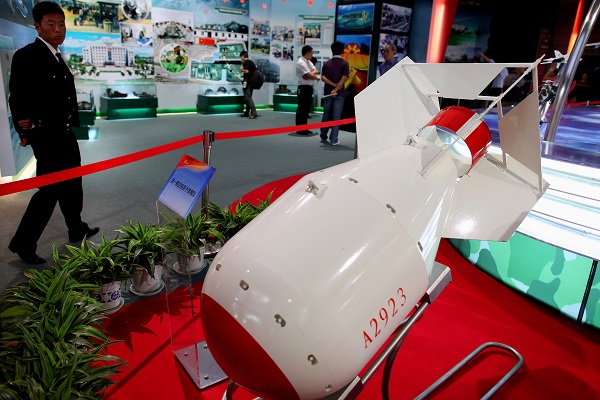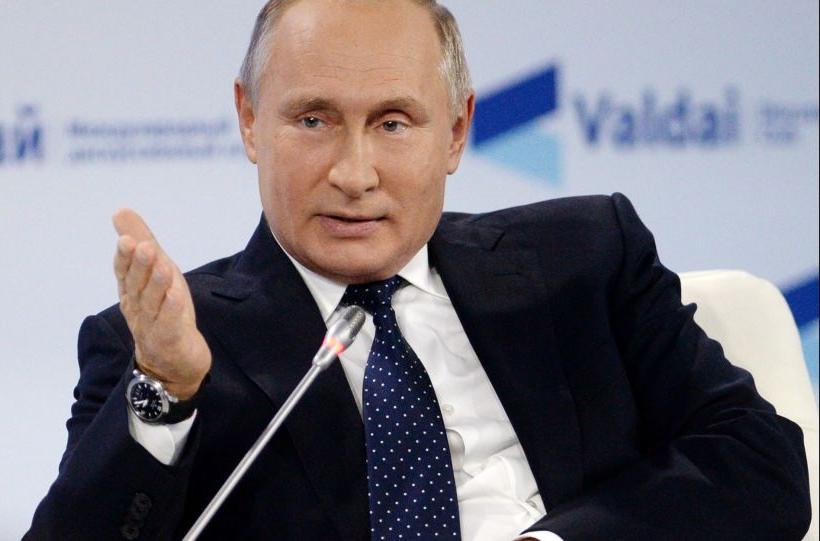Luo Xi, Research Fellow, Academic of Military Science of China
Oct 27, 2020
Emerging technologies are bringing advanced capabilities to more countries and adding new ambiguities, which only increase risk. Failing to strengthen controls now will lead to a new arms race.

Zhao Tong, Fellow, Carnegie–Tsinghua Center for Global Policy
May 19, 2020
A popular view in China is that more nuclear weapons would garner respect from the international community. But it may only inspire fear, which would be counterproductive.

Richard Weitz, Senior Fellow, Hudson Institute
Nov 28, 2019
A joint early-warning system throws a curveball at the United States and the global military order.
Li Zheng, Assistant Research Processor, China Institutes of Contemporary International Relations
Sep 11, 2019
After the United States officially withdrew from the Intermediate-Range Nuclear Forces Treaty, U.S. Defense Secretary Mark Esper said that the country hopes to deploy medium-range missiles in Asia. This remark quickly sparked widespread controversy, and most countries don’t want to see the terrible scene of a missile race in the region.
Fan Gaoyue, Guest Professor at Sichuan University, Former Chief Specialist at PLA Academy of Military Science
Jan 30, 2019
The 2019 MDR is a call for an arms race, which is detrimental to world peace, stability, cooperation, and development and should be resolutely rejected.
Feb 06, 2018
China carried out another test of an anti-missile intercept system and claimed that it is defensive and not aimed at any country.

Shaun Tan, Writer
Nov 22, 2017
The objections to THAAD are misguided. The more antiballistic missile systems the world has, the safer it will be.
Yu Sui, Professor, China Center for Contemporary World Studies
Jun 24, 2016
The US deployment of anti-missile systems in Eastern Europe could lead to a new arms race. Russia sees the moves as a harbinger of the eastward expansion of NATO and perhaps a springboard for the United States to expand and increase its presence into the Middle East, the Caucasus and Central Asian regions. This will not be constructive to easing tensions and creating stability in Europe.
Richard Weitz, Senior Fellow, Hudson Institute
May 26, 2015
Amidst Chinese and U.S. opposition, North Korea has amplified its pressure on South Korea and allies through its weapons development. However, China has opposed U.S. deployment of a Terminal High-Altitude Area Defense (THAAD) in South Korea, which could halt progress.
Doug Bandow, Senior Fellow, Cato Institute
Nov 21, 2014
Doug Bandow explains how expanding the INF Treaty to Asia would benefit U.S. – Russian cooperation and dampen geopolitical and military tension over territorial issues. While China might initially be wary of joining such an effort due to concerns with Taiwanese independence, a new arms control regime would ultimately offer Beijing significant benefits as well.
Back to Top

- China-US Focus builds trust and understanding between the U.S. and China through open dialogue among thought leaders.
- Our Offerings
- Topics
- Videos
- Podcasts
- Columnists
- Research Reports
- Focus Digest
- Stay Connected
-
Thanks for signing up!
- Get the latest stories from China-US Focus weekly.